Welcome!
This bulletin is dedicated to cyber-related education, skills and training. It is for anyone interested in forthcoming education opportunities relating to cyber resilience or cyber security (for example, learners, school teachers, youth workers, college lecturers, academics, training providers or learning and development managers).
Please subscribe to our CyberScotland mailing list to be notified by email when a new bulletin is published.
Keep up to date on social media, follow us on Twitter and LinkedIn.
CyberScotland Week, 27th February – 5th March 2023
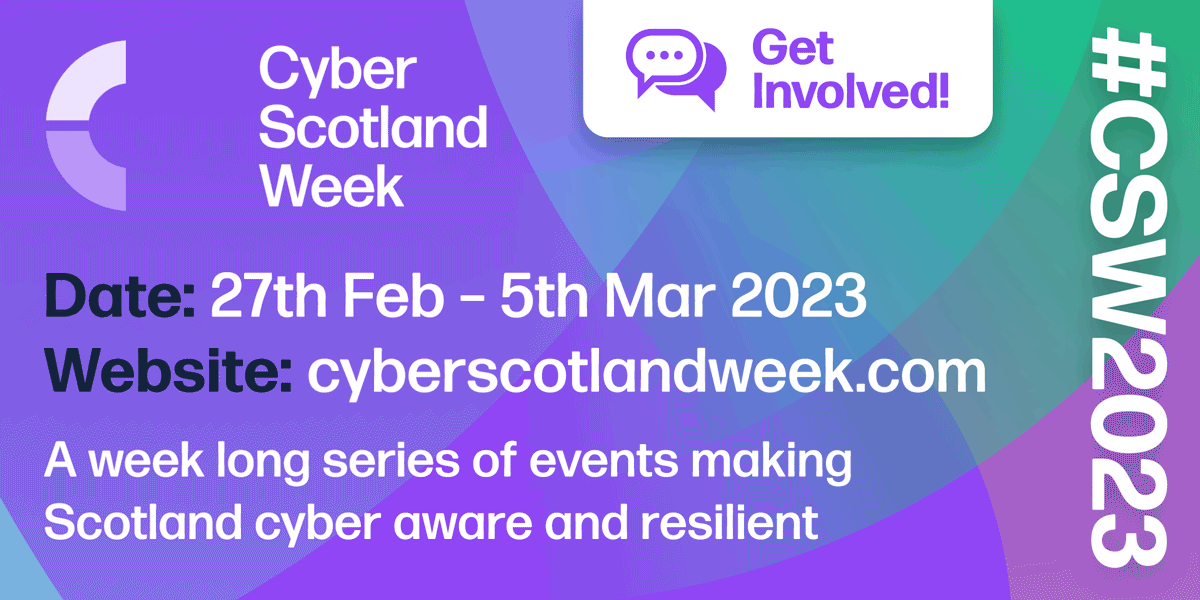
CyberScotland Week, 27th February – 5th March 2023
Join us for CyberScotland Week 2023. A week of events focused on raising cyber awareness, developing skills and promoting innovation. There will be a wealth of education and training activity taking place during the week. Why not promote your own activity as well?
Free webinars, resources and learning opportunities will be available throughout the week . These will help people and organisations become more informed about cyber risks and learn how to become more cyber resilient. There will be opportunities to connect with industry leaders in the field of cyber security. Some key dates include:
- Holyrood Connect, Public Sector Cyber Security – 2nd February
- Future Scot, Cyber Security 2023 – 27th February
- OSP Academy, OT / IT Cyber Summit Aberdeen – 2nd March
See the full event listing on the CyberScotland Week website and book your tickets.
If you would like to organise an event, you can find out more about how to get involved on the website. Keep up to date on social media: Twitter, Facebook, LinkedIn
Schools

For P7 to S4 pupils: Discover Tech Skills Live – Hide Secret Messages Using Tech
Open the door to a life of online crime fighting in a new series of live and online cyber security lessons. With no technical knowledge needed, these practical classes enhance digital skills, allow pupils to ask the experts how it’s really done, and also showcase careers in cyber security, one of the fastest growing sectors in the world today. Join Skills Development Scotland for this interactive lesson to discover how steganography works and your learners will be challenged to use digital tools to uncover secret messages hidden inside digital images.
Steganography is the science of hiding information. You can use steganography to hide secret messages inside what looks like an innocent photograph. Cyber criminals use this technique to secretly communicate with each other, so more people must understand this devious use of science and technology.
Your class is invited to learn how to prevent cyber crime whilst having fun using technology.
When: Wednesday 29th March, 2 – 3pm, Register here
For Girls: CyberFirst Development Days
The National Cyber Security Centre (NCSC), is running free courses in February and March 2023 to help girls explore their passion for computers and technology and introduce them to the fascinating world of cyber security.
The development days are open to girls in S2/S3 in Scotland. For more information and to sign up, please see CyberFirst Girls Development Days (qa.com)

Becoming a CyberFirst Member
There are currently approximately 200 CyberFirst members supporting CyberFirst activities including the Bursary programme, annual Girls Competition, summer courses for young people and supporting CyberFirst Schools and Colleges. They are keen to boost membership in Scotland.
To find out how to become a CyberFirst member, please email cfstakeholders@ncsc.gov.uk
For 12 – 14 year olds: CyberFirst Trailblazers and Adventurers Courses
Trailblazers and Adventurers are free and interactive learning events for 12-14-year-olds, offering an exciting introduction into the world of computer science.
To join us for a free half-day, face-to-face event, please see Trailblazers and Adventurers (qa.com)
Update on CyberFirst Girls Competition
The qualification round for this year’s CyberFirst Girls Competition has now closed. All schools have been notified and invited to attend a regional final.
Scotland has done exceptionally well this year with a huge increase in the number of schools registering to take part compared with last year. NCSC is looking forward to hosting the Scottish final in February in Edinburgh.
Congratulations to these schools which have reached the Scottish finals:
- Hyndland Secondary School, Glasgow
- Trinity High School, South Lanarkshire
- Girvan Academy, Ayrshire
- Stirling High School, Stirling
- Douglas Academy, East Dunbartonshire
- Greenwood Academy, Ayrshire
- Carluke High School, South Lanarkshire
- Linlithgow Academy, West Lothian
- Biggar High School, South Lanarkshire
- Saint Matthew’s Academy, North Ayrshire
- Pitlochry High School, Perth & Kinross

Campaign on Romance Fraud
Young Scot will be launching a Digi Know campaign, across social media channels, focusing on Romance Fraud.
Building on engaging with young people who outlined the themes and types of content, this campaign will include information on how to identify, how to respond and how to be resilient to online fraud and scams. This will be launching week beginning 6 February and running for two weeks.
For more info, check https://young.scot/campaigns/digiknow/
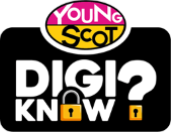
For 11 – 26 year olds: DigiKnow Award
Young Scot are pleased to share an opportunity for young people to develop their cyber resilience skills and identify career pathways in the cyber and digital landscape.
The DigiKnow? Award is hosted by Glasgow Kelvin College and accredited as SCQF Level 4 with 4 credit points attached. It is open to all young people in Scotland aged 11 and up (with parental consent required for under 13s.) By the end of the programme, learners will be able to;
- Stay safe and protected from online harms
- Spot online threats
- Understand the impact of technology use
- Be aware of the range of job opportunities available in cyber careers
Through Glasgow Kelvin College’s Moodle site, learners will have access to course tutors, resources, content, assessments and digital badges. For more information visit their corporate site or contact them via digiknow@young.scot
Young people can find out more about the DigiKnow? Award on our website at https://young.scot/campaigns/digiknow/
New SCQF level 3 unit in Cyber Security Unit
Education Scotland has created learning and teaching resources for a new cyber security Scottish Credit and Qualifications Framework level 3. These resources can be found on Glow, under Microsoft team titled ‘CyberFirst’.
The new unit will give learners a basic introduction to cyber security and the skills and knowledge they will need to prepare them to undertake a National Progression Award in Cyber Security (which are available at Levels 4, 5 and 6).
Education Scotland has already delivered a webinar on this new unit and accompanying resources and plans to deliver another webinar later this year so keep an eye on the Twitter account @DigiLearnScot for more details.


For Teachers: Introduction to Cyber Security for Teachers (2023) (via the University of the Highlands and Islands (UHI)) – Funded places available
The CPD award ‘Introduction to Cyber Security’ was created for all primary and secondary teachers and designed to give background knowledge and understanding related to teaching basic cybersecurity and configuring an environment suitable for cybersecurity education.
The module allows teachers to get a basic practical understanding of cybersecurity and cyber resilience and the relationship between these two areas. This will enable teachers to have the awareness and confidence to support pupils and create practical activities and content. The module content is levelled at SCQF 7 however is appropriate for teachers delivering to BOTH primary and secondary pupils.
The module will be delivered over 14 weeks and the semester will start the week beginning 23rd January 2023 with an online induction and initial lecture.
No time off will be required during the school day. The lectures are recorded for students unable to attend in person. All activity is carried out online the majority of which happens asynchronously. The modules have a notional 200 hours per module over the semester. It would depend on previous experience whether the full 200 hours is required. It is recommended that a day at the weekend or a couple of evenings a week would be required to achieve this award.
The courses are open to any teacher with the relevant entry qualifications (degree and existing teaching qualification) who have an interest in computing or cyber security.
To apply for the course register with this link: https://www.uhi.ac.uk/en/courses/cpd-award-introduction-to-cyber-security/
For any queries, please get in touch with Gordon: Gordon.macpherson.ic@uhi.ac.uk
Colleges and Universities
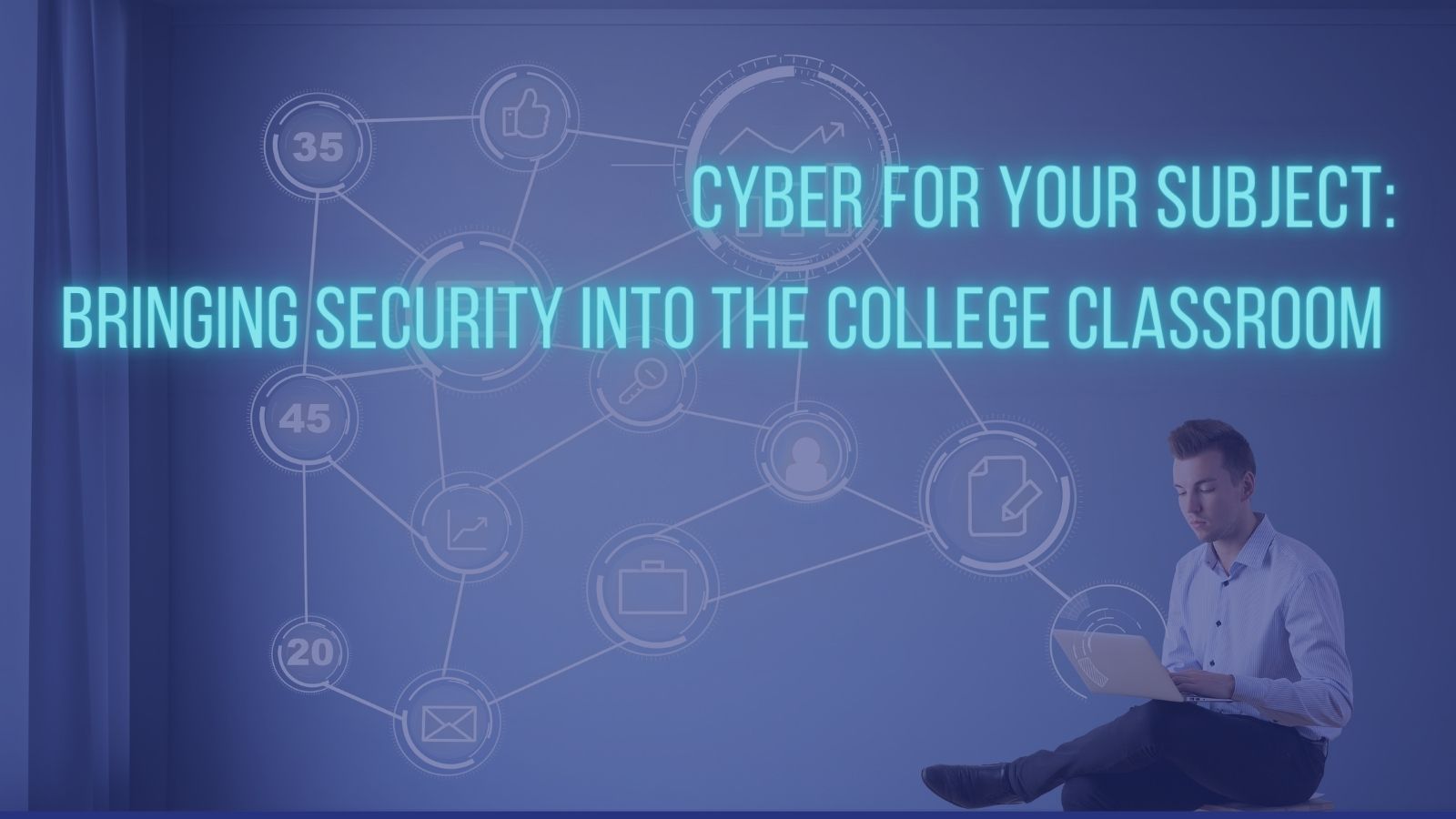
Cyber for Your Subject: Bringing Security to the College Classroom
Dundee and Angus College in collaboration with Skills Development Scotland have created a course to raise awareness of, and develop skills in cyber security. This course is designed to engage learners who are, not from computing or technical backgrounds and highlight the importance of cyber security to everyone.
All colleges in Scotland are invited to be a part of the next phase which will give lecturers and students some exposure to an important topic that may be out of their comfort zone. Starting in March 2023, Dundee and Angus College will give lecturers access to all materials and resources needed to deliver the unit to a class over 8 weeks and will also provide weekly lecturer-led classes and online staff support to assist delivery.
All participating students are accredited with an SQA unit, which appears on their certificate at the end of the year if they achieve successfully. This sessions (see links below) will tell you how to get your college and students involved in this course.
Student pop-up stalls
A team from the University of St Andrews is helping students provide cyber security advice to their peers at pop-up stalls.
After consulting with students, they designed a leaflet and trialled their approach in front of their main library. They aim to show that the stalls work and to make it easy for other universities and further education colleges to run the stalls in future. For more information, contact Jean Carletta.

Businesses and other organisations

Industry Engagement in Education
The ‘Tech Industry in the Classroom’ programme, run by Skills Development Scotland, sees employers from the digital sector using their industry experience and guided activities to offer school pupils an insight into their day-to-day work.
This programme gives tech companies the chance to help the next generation of school pupils enhance their digital technology skills using a toolkit and a series of training sessions that detail the support available from more than 10 different partners.
There are lots of ideas and activities already available, which are detailed in the toolkit. These are fun activities to get pupils working together to solve problems in areas like digital forensics and software development.
This means you can provide a high-quality activity, aligned with the curriculum, that helps young people learn something new from industry experienced employees.
These training sessions will give you the tools and confidence to engage with young students through step-by-step tutorials. You’ll learn how to use the materials in the classroom, and get the chance to try it out.
Exercise in a Box Workshop – exercising your response to a cyber incident, 26th January
The Scottish Business Resilience Centre (SBRC) is facilitating workshops taking Scottish public and third-sector organisations through using NCSC’s Exercise in Box security tool. They are offering free in-person workshops alongside their virtual sessions covering ‘Ransomware’, ‘Digital Supply Chain’, ‘Sensitive Data Leak’ and ‘Micro Exercises’.
This is a great opportunity for you to test the resilience of your organisation and consider what you might need to change in order to make your organisations more cyber resilient.
- Exercise in a Box ‘Miro Exercises’ MS Teams – 26th January
- Exercise in a Box ‘Sensitive Data Leak’ MS Teams – 9th February
Workshops are free to those in health, social care, housing, charitable or public sector organisation in Scotland looking to strengthen your cyber defences, sign up below.
Find out more details and book ongoing Exercise in a Box events
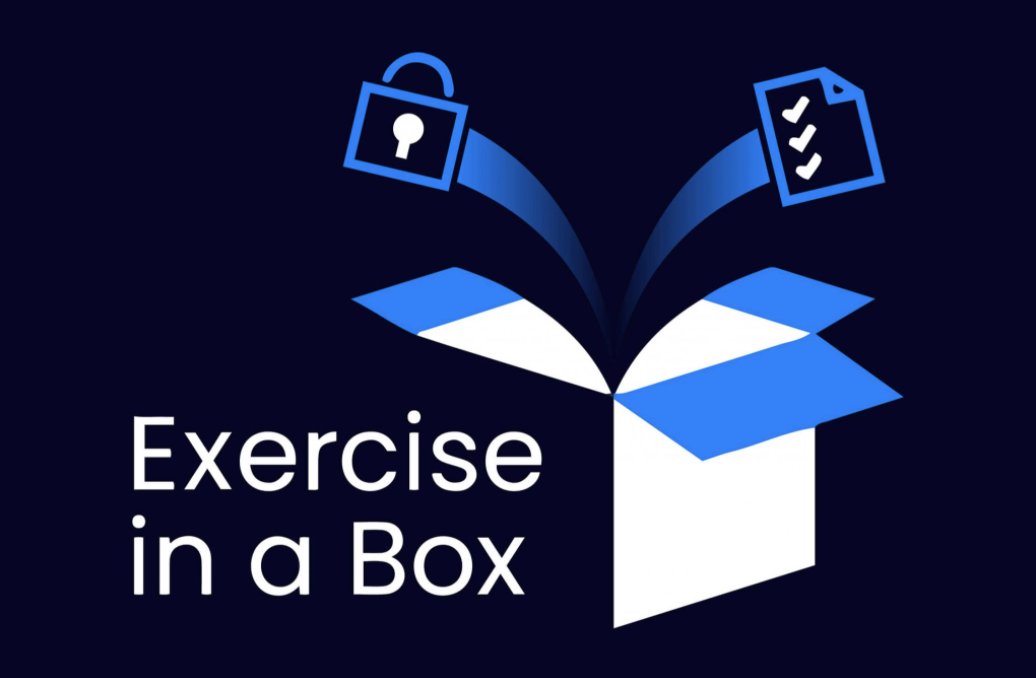
SBRC is going on tour with a series of roadshow events for Public and Third Sector organisations.
These events will focus on discussing some key cyber security topics you and your organisation or charity should be considering for 2023.
Find out more and secure your place today.
Community Learning and Development
Digital Youth Work Conference, Safer Internet Day 7th February 2023
Join YouthLink Scotland on Safer Internet Day (7th February) for a digital youth work conference in Dundee.
This free event is for youth workers, and other CLD workers interested in using digital well in their work with young people.
Come and explore digital youth work and how to embed cyber resilience in your youth work practice. It may be what you do every day or your ambition to get started. Either way, this day will be an opportunity to meet, talk, do and learn with other like-minded people.
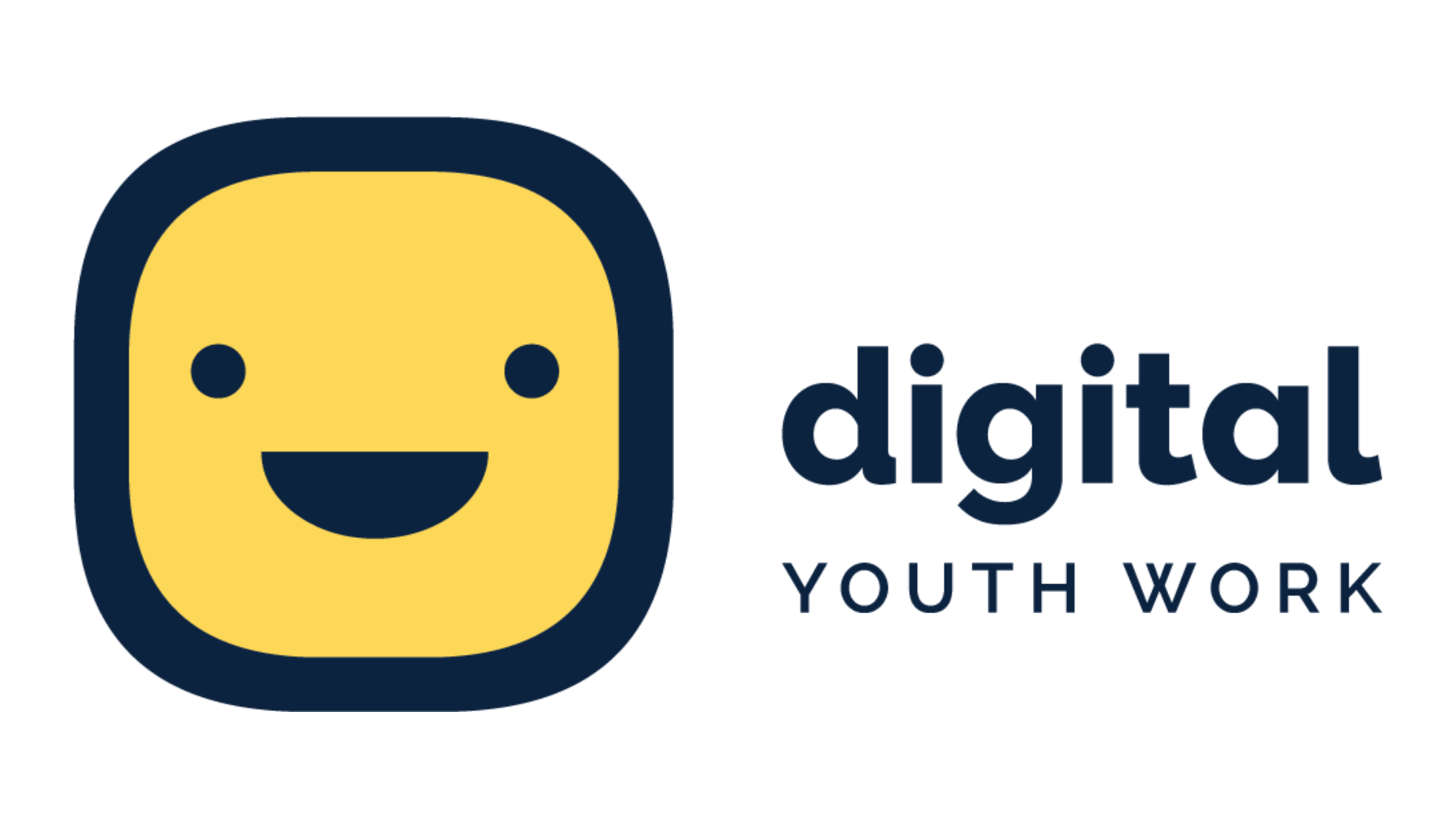
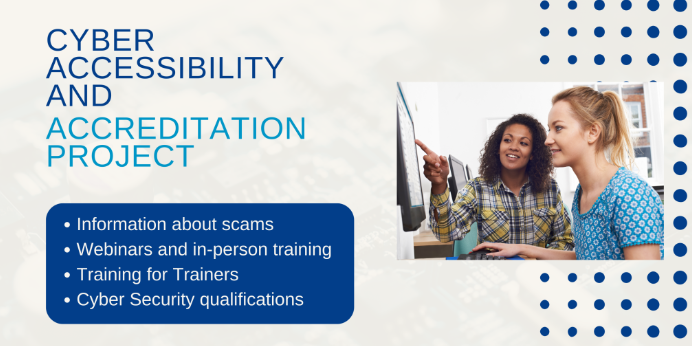
Lead Scotland’s Cyber Accessibility and Accreditation Project
Stay safe and secure online and feel more confidence passing on this information to others. Find out more on the Lead Scotland project webpage and contact cyberproject@lead.org.uk to get started.
Lead Scotland will deliver tutor supported webinars, train the trainer sessions as well as opportunities for learners to gain qualifications in Cyber Security. If you are an SQA Centre, they will happily share combined learning and teaching resources so that more learners can work towards two qualifications at the same time.
Lead Scotland works in partnership with the National Cyber Security Centre (NCSC), translating the NCSC’s Cyber Aware campaign into accessible formats including British Sign Language, Easy Read and Community Languages.
Get started today and enroll for one of Lead Scotland’s free online courses.
Learning for Everyone

Free online “Practical Cyber Resilience” short course
Do you want to improve your cyber security habits and learn how to use security apps? Here’s how to do it without boring presentations or complicated technical instructions.
Increase knowledge and confidence on this micro course run over two 2-hour sessions. You’ll earn a certificate and (real!) badge on completion. You don’t need any technical knowledge or experience to take part.
Feedback from previous attendees say that this online course is “friendly and non patronising” “entertaining and informative” “clear and non-judgmental” “just what I needed but was too afraid to ask”.
These workshops are organised by Scottish Union Learning and Digital Skills Education, thanks to funding from the Scottish Government’s Cyber Resilience Unit in partnership with the UK Government.
“Your Cyber Resilience Questions Answered” Video Series
Got a cyber security question that you’d like researched and answered in an easy-to-understand way? This series of short videos, provided by Scottish Union Learning, answer real questions from real people in Scotland.
Kirstie from CyberScotland and Daniel from Digital Skills Education answer questions from Scottish workers on everything Cyber.
In the two episodes available so far, Kirstie and Daniel answer questions about what to do if you click a phishing link, and what it means to ‘accept cookies’, and whether your TV needs antivirus software.


